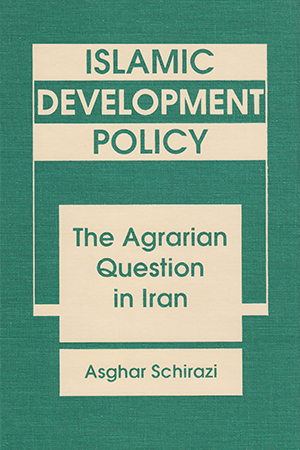Schirazi uses agricultural policy to demonstrate the complications and consequences resulting from the Islamization of development policy in Iran.
Refuting claims by Iran's religious leaders that their interpretation of Islam provides the best possible solution for development problems, not only in Iran, but throughout the world, the author concludes from his research that the conception of Islam as an ideological basis for development policy must change radically if it is to make any contribution to solving the problems that it faces.
Asghar Schirazi is research associate in the Department of Political Science, Middle East Studies Section, at the Free University of Berlin. His research focuses on the sociology of development.
[This book] provides a highly readable account of how the revolutionaries formulated their agricultural objectives and evaluates thier success in acheiving these goals. It offers us a rare glimpse of the dynamics of change in the bureaucratic machinery that dealt with the agricultural sector in Iran."—Iranian Studies
"Provide[s] a unique contribution to understanding the complexity of agricultural development, policy issues, and implementation processes under the current regime.... A comprehensive study on Islamization in practice, as it relates to the Iranian agrarian economy. The book provides interesting reading for students of contemporary political thought, Islamic studies, and agrarian reform and development in the Middle East."—International Journal of Middle East Studies
"Schirazi's comprehensive examination of agrarian policies during the first decade of the Islamic Republic provides valuable information about the regime's approach to development."—CIRA Newsletter
"Well researched, highly informative and a welcome addition to the scholarly literature."—MESA Bulletin
"Contains a lot of precious primary sources on the economic theories and policies of the Islamic Republic of Iran."—Choice






